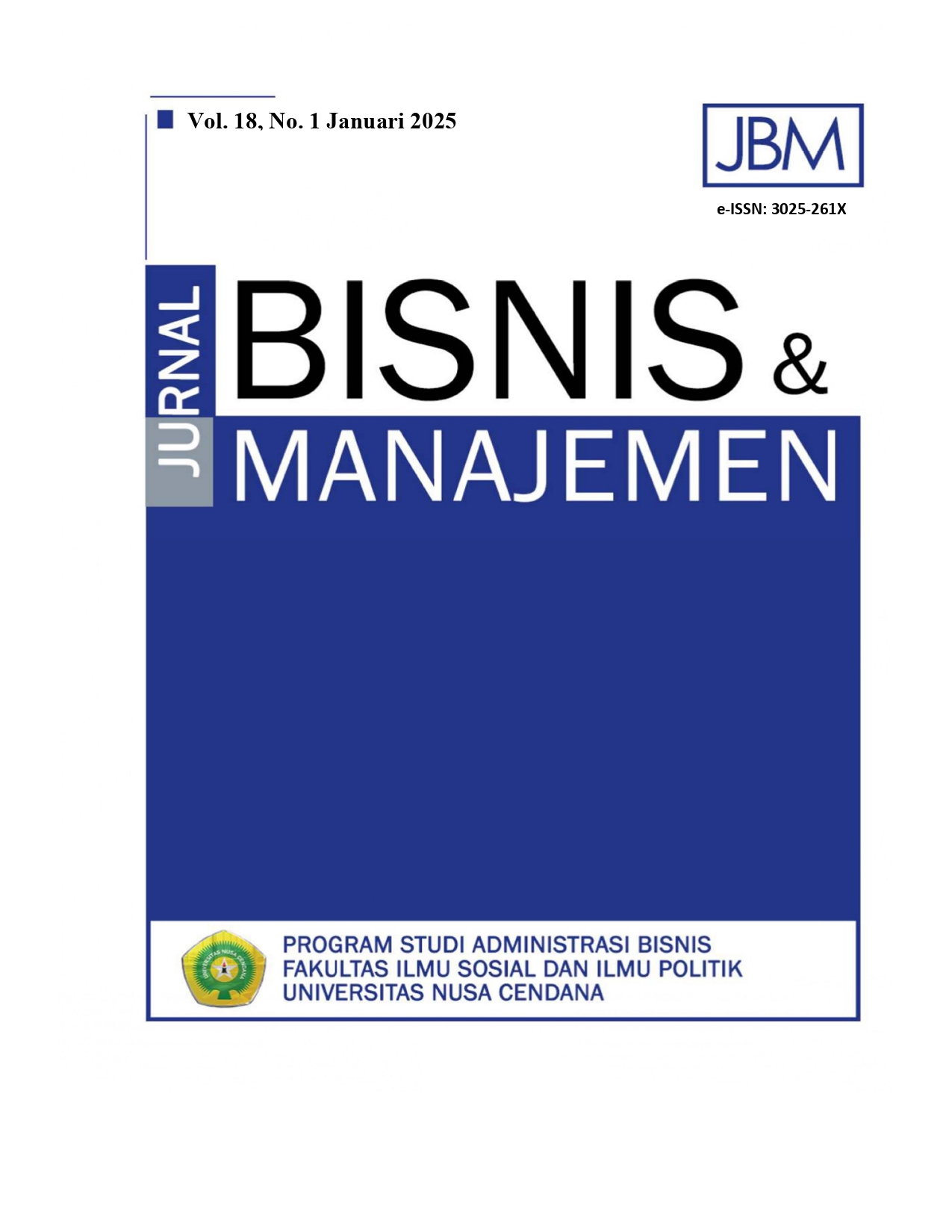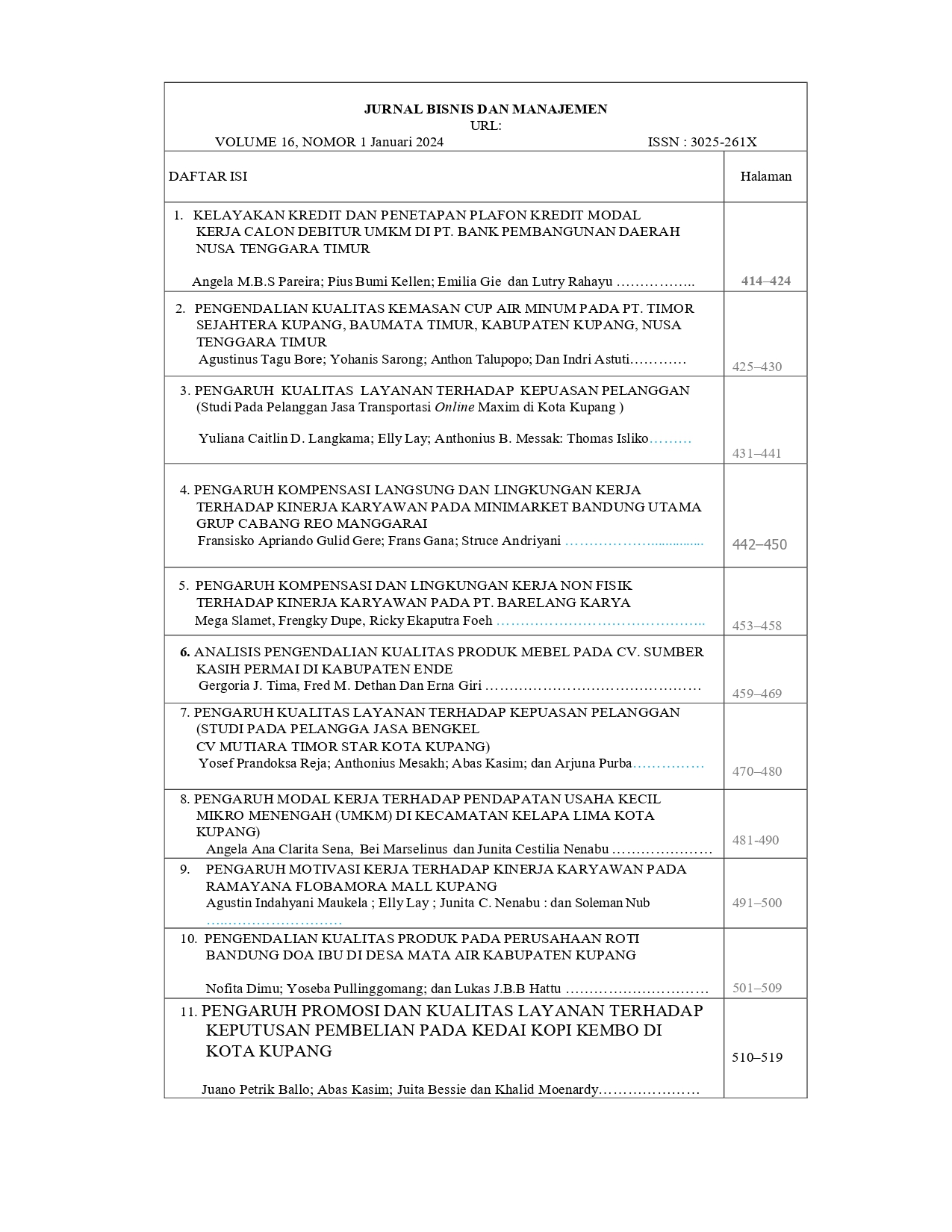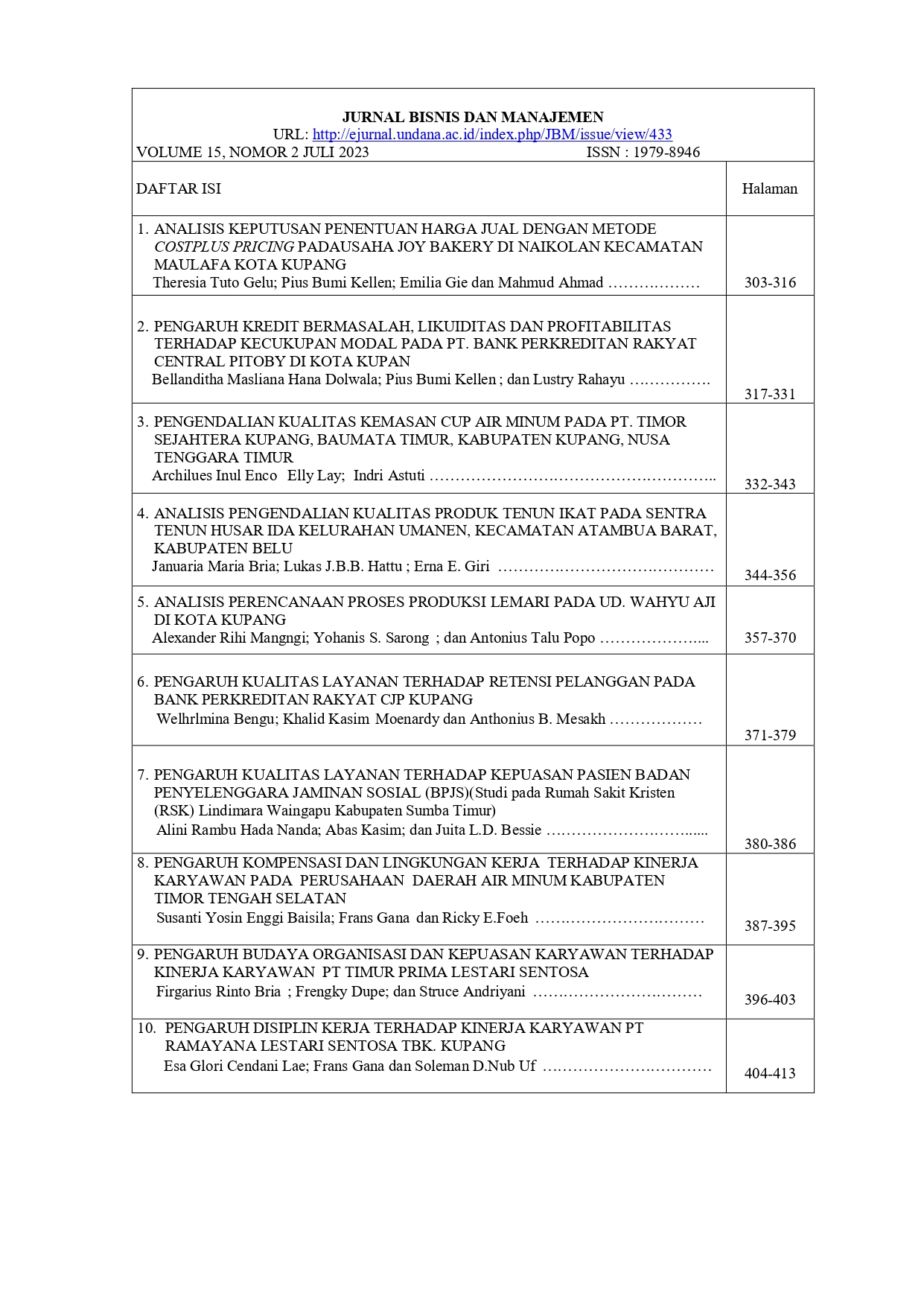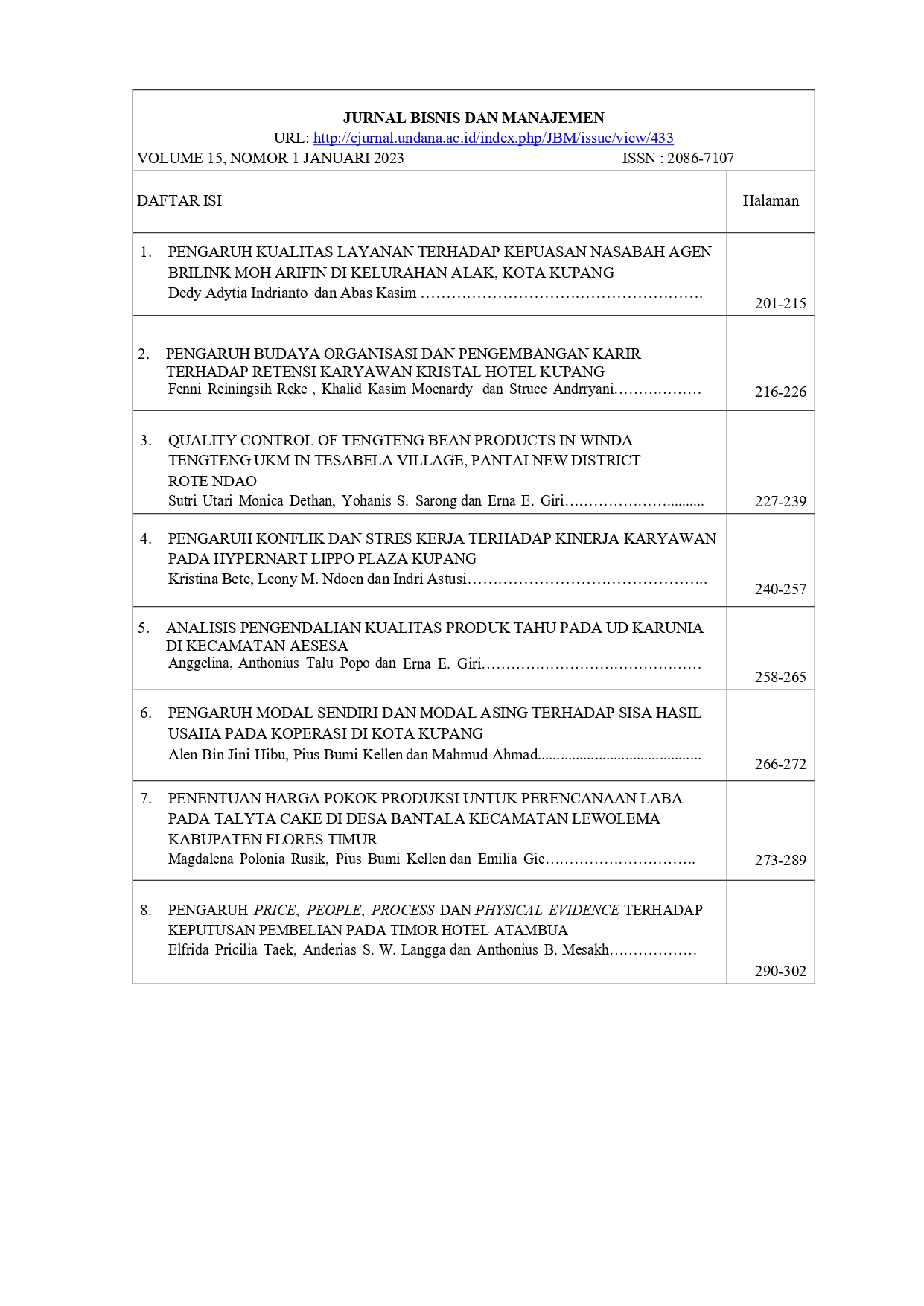PENGARUH CUSTOMER RELATIONSHIP MANAGEMENT TERHADAP LOYALITAS NASABAH PADA BANK NTT KUPANG CABANG KHUSUS
Abstract
The objectives of this study are: 1) To determine customer perceptions of the influence of sustainable marketing, individual marketing, and cooperation programs on customer loyalty at Bank NTT Kupang Special Branch Office. 2) To analyze and explain the influence of sustainable marketing on customer loyalty at Bank NTT Kupang Special Branch Office. 3) To analyze and explain the influence of individual marketing on customer loyalty at Bank NTT Kupang Special Branch Office. 4) To analyze and explain the influence of cooperation programs on customer loyalty at Bank NTT Kupang Special Branch Office. 5) Analyze and explain the influence of sustainable marketing, individual marketing, and cooperation programs simultaneously on customer loyalty at Bank NTT Kupang Special Branch Office. The population in this study were customers of Bank NTT Kupang Special Branch Office in 2023 totaling 8008 people. The sample taken was 100 respondents who were customers at Bank NTT Kupang Special Branch Office using purposive sampling techniques. Data collection used questionnaires and interviews. The data analysis techniques used are quantitative descriptive analysis, multiple linear regression analysis and hypothesis testing of t-test, f-test, and coefficient of determination analysis (R2) using the SPSS 26 application. The results of the descriptive study showed that overall respondents gave a very good perception assessment of sustainable marketing, individual marketing and cooperation programs. From the results of the multiple linear regression analysis, the equation was obtained: Y = 0.173 + 0.189 X1 + 0.554 X2 + 0.252 X3 + 0.443. The results of the t-test showed that 1) Sustainable marketing variables have a significant effect on customer loyalty, as evidenced by the t-count value of 3.204. 2) Individual marketing variables have a significant effect on customer loyalty, as evidenced by the t-count value of 8.638. 3) Cooperation program variables have a significant effect on customer loyalty, as evidenced by the t-count value of 3.989. There is a simultaneous influence between sustainable marketing, individual marketing and cooperation programs on customer loyalty, as evidenced by the calculated F value of 346.443. The Adjusted R Square figure of 0.913 shows that 91.3% of the customer loyalty variable is influenced by the independent variable while the remaining 8.7% is influenced by variables not discussed in this study. For this reason, it is recommended for further researchers to be able to add other variables that are still included in the customer relationship management dimension which also aims to increase customer loyalty such as between people, process, and technology.

 Arjuna Purba(1)
Arjuna Purba(1)





